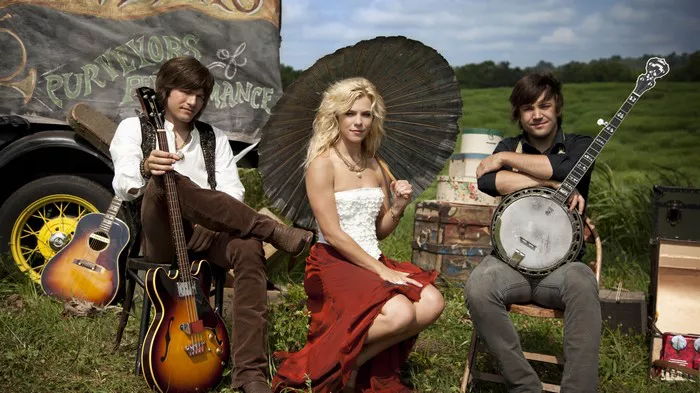Country music, a genre that resonates deeply with the American soul, has a rich and storied history. From its humble beginnings in the Appalachian Mountains to its current status as a global phenomenon, country music has left an indelible mark on the music industry. In this article, we’ll embark on a musical journey through time and space, exploring the best country music of all time.
The Birth of Country Music: A Folk Tradition Emerges
Country music emerged as a distinct genre in the early 20th century, drawing from a blend of European and African musical traditions. Its roots can be traced back to the folk songs and ballads of the Appalachian region, where storytelling through music was a way of life. With simple instrumentation, heartfelt lyrics, and a deep connection to the land, early country music set the stage for a genre that would endure for generations.
The Father of Country Music: Jimmie Rodgers
In the annals of country music, few names shine as brightly as Jimmie Rodgers. Often referred to as the “Father of Country Music,” Rodgers made a profound impact on the genre. His yodeling style, distinctive voice, and emotive lyrics captivated audiences in the 1920s. Hits like “Blue Yodel No. 1 (T for Texas)” and “In the Jailhouse Now” remain iconic to this day, solidifying his place in the pantheon of country music legends.
The Pioneering Women of Country Music
While the early days of country music were predominantly male-dominated, several remarkable women defied the odds and made significant contributions to the genre. Patsy Cline, known for her timeless ballads like “Crazy,” and Loretta Lynn, the “Coal Miner’s Daughter,” brought a unique and powerful female perspective to country music. Their songs continue to inspire and resonate with audiences, underscoring the genre’s ability to tell universal stories of love, heartbreak, and resilience.
Outlaws and Rebels: The Changing Face of Country Music
As country music evolved, it began to embrace new sounds and attitudes. The 1970s saw the rise of the outlaw movement, led by artists like Willie Nelson and Waylon Jennings. These rebels challenged the conventions of the Nashville establishment, embracing a more rock-influenced sound and a fiercely independent spirit. Songs like “On the Road Again” and “Mamas Don’t Let Your Babies Grow Up to Be Cowboys” became anthems of a generation, proving that country music could be both rebellious and authentic.
Country Goes Pop: The Nashville Sound
The country music landscape underwent a major transformation in the 1960s with the advent of the Nashville Sound. Artists like Patsy Cline and Jim Reeves helped popularize this smoother and more polished style of country music, characterized by lush orchestration and sophisticated production. While purists debated the authenticity of this new sound, it undeniably brought country music to a wider audience and set the stage for the genre’s future crossover success.
The 1980s Renaissance: A New Wave of Country Superstars
The 1980s witnessed a resurgence of country music, with a new wave of talented artists rising to stardom. Figures like George Strait, Reba McEntire, and Randy Travis revitalized the traditional country sound, earning legions of fans with songs that celebrated love, heartache, and small-town life. Their contributions solidified country music as a genre with staying power, capable of appealing to diverse audiences.
Honky Tonk Heroes: The Legacy of Merle Haggard and George Jones
No exploration of the best country music would be complete without acknowledging the impact of Merle Haggard and George Jones. These honky-tonk legends gave voice to the working-class struggles and hardships that many could relate to. Haggard’s “Okie from Muskogee” and Jones’s “He Stopped Loving Her Today” are masterpieces of storytelling, exemplifying the emotional depth that country music can achieve.
The Evolution Continues: Country Music in the Modern Era
Country music has continued to evolve and adapt to the changing musical landscape of the 21st century. Artists like Taylor Swift, who began as a country sensation before transitioning to pop, have brought a fresh perspective to the genre. Simultaneously, musicians like Chris Stapleton and Kacey Musgraves have blended traditional country elements with modern sensibilities, proving that country music remains a genre with boundless creative potential.
Global Influence: Country Music Beyond America’s Borders
While country music has deep roots in the United States, its influence has transcended national boundaries. In recent years, artists from around the world, including Canada’s Shania Twain and Australia’s Keith Urban, have made significant contributions to the genre. This global reach underscores the universality of country music’s themes and melodies, as they resonate with audiences far and wide.
Conclusion
In conclusion, country music is a genre that has endured and thrived for over a century, captivating hearts and minds with its tales of love, loss, and life’s journey. From the early folk traditions of the Appalachian Mountains to the rebellious spirit of the outlaw movement and the modern fusion of styles, country music has consistently evolved while staying true to its roots.
As we’ve explored the best country music of all time, we’ve seen how this genre has touched the lives of countless individuals, transcending geographical and cultural boundaries. Its ability to tell relatable stories and evoke genuine emotions is what makes country music a timeless and cherished art form, one that will undoubtedly continue to shape the musical landscape for generations to come. So, whether you’re a die-hard country fan or a casual listener, there’s no denying the enduring magic of country music.

